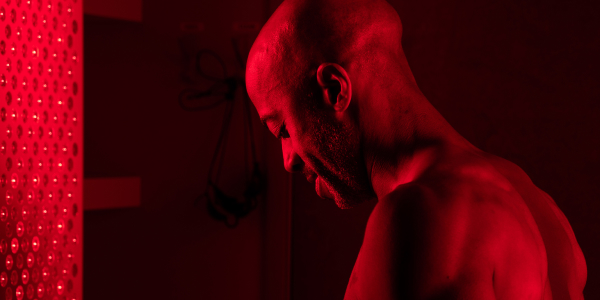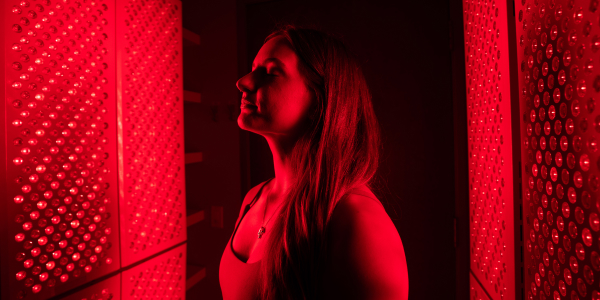Acupuncture is an alternative treatment for many ailments, including allergies. For thousands of years, acupuncture has helped people around the world. Yet, western culture has only recently embraced the holistic benefits of acupuncture.
Up to 50 million people in the U.S. suffer from allergies. As a result, we rely on allergy medications, which have side effects. These side effects can make you sluggish, like the allergies you're trying to eliminate!
What else can you do when your eyes are itchy and watery, your nose congested, and your head is pounding?
Acupuncture Versus Antihistamines
Acupuncture is a proven modality for allergy relief. According to Andrew Cheever, a licensed acupuncturist (LAC) based in Boston, it centers around the patient and what they’re feeling in the moment. For example, for a patient experiencing congestion one day versus itchy eyes the next, he would target different points to address these symptoms.
For acupuncture, a patient would “receive the same root components of their treatment,” but with “slightly different branch elements,” he says. The root is allergies, and the branch is symptoms, which can vary daily. This root/branch model is more targeted and personalized than over-the-counter allergy meds.
Compared to antihistamines, acupuncture has few side effects and zero drug interactions. However, antihistamines can make you sleepy, dizzy, and constipated. Antihistamines also interact with many drugs.
What is Acupuncture?
Acupuncture is a traditional healing method rooted in Traditional Chinese Medicine (TCM). Acupuncture focuses on balancing Qi (pronounced “chee,”) or life force energy, within the body.
Acupuncture Points
Qi flows when specific skin points, also known as acupuncture points, are activated. It begins when a LAC inserts a needle into the superficial part of your skin–or fascia. Fascia is a nerve-rich, sensitive connective tissue that holds your organs, blood vessels, and nerve fibers in place.
Eighty percent (80%) of acupuncture points are in superficial parts of the skin fascia. In TCM, acupuncture needles direct energy along the body's meridians to restore balance. These meridians are the pathways to organs in your body and between acupuncture points.
How Acupuncture Helps Allergies
According to TCM, immunity is called “defensive Qi.” Defensive Qi is located on the lung, colon, stomach, and spleen meridians. These meridians, or channels, are commonly used to harmonize Qi flow in acupuncture.
Allergy symptoms are frequently related to Dampness, Heat, or Damp-Heat, says Andrew. For example, Dampness drives many allergy symptoms, such as congestion, brain fog, and fatigue, he explains. “Watery eyes could be from Dampness, but in the context of allergies, are more likely from Heat.” Points that resolve Dampness are on the spleen meridian.
A core part of acupuncture is harmonizing the yin and yang, as TCM focuses on dualities. In TCM, cold and heat can block the defensive Qi flow. For example, Andrew targets “yin” for dryness and itchiness and focuses on liver points. Liver points also relate to eye symptoms, such as dry or itchy eyes. He describes yin as associated with moisture and coolness, so treating this imbalance involves nourishing yin and clearing Heat.
Overall, acupuncture tries to retrain the body to return to a more relaxed state, says Andrew. A less stressed body means more peace, energy balance, and a healthier immune response.
Acupuncture Benefits Allergies and Immunity
Allergies are essentially your body attacking itself. It’s considered an autoimmune response.
An autoimmune response happens when your cells detect a "foreign" substance, which triggers a histamine response. Histamines are why you get itchy, congested, and inflamed. These allergy symptoms are caused by stomach acid secretions, swollen blood vessels, and muscle constriction.
Skin, for example, is a common site for allergic reactions. In acupuncture, symptoms related to the skin are on the lung meridian. The lungs are affected by histamine release in an allergic response.
Many studies prove acupuncture is the better solution for allergy relief. For asthma and hay fever, acupuncture alleviated symptoms more than antihistamines did. In a 2012 study, itching improved more after dermatitis patients received acupuncture than antihistamines.
Acupuncture also improves circulation in your skin, muscles, and organs, so you feel renewed from the inside out. In addition, it’s soothing for your nervous system and releases endorphins. All of which promote a robust immune response, leaving allergies in the dust.
Lindsay Kohn, a licensed acupuncturist and owner of Five Elements Austin, explains the full-body benefits of acupuncture. “When a person is balanced, and all systems operate appropriately, they can ward off allergies much better.”
Acupuncture's complex yet holistic approach to allergy care is why it works. It's proven to have lasting results for centuries. So why not book an acupuncture session today? And finally, receive the allergy relief you deserve.



.jpg)


